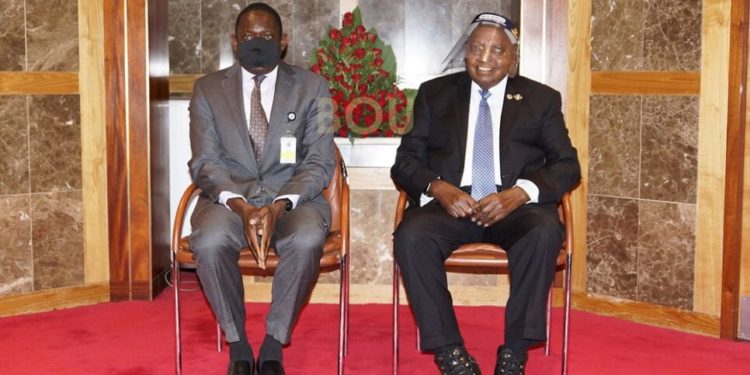The Deputy Governor of Bank of Uganda Micheal Atingi-ego has cautioned officials in the Ministry of Finance, Planning and Economic Development against the increasing rates of borrowing.
Mr. Atingi-ego said that the escalating number of trillions of shillings in borrowing is putting Uganda’s economy at risk beyond which it may take decades to revive it.
Uganda’s debt burden is estimated at Shs 64.82 trillion as of December 2020. As per the government plans in the next budget, Uganda’s national debt stock will rise to 52 percent of the Gross Domestic Product (GDP) which is above the cap Uganda and other East African countries had agreed with the International Monetary Fund.
Due to the outbreak of Covid-19, Uganda’s economy has suffered serious setbacks which have been facilitated by the rapid accumulations of debts by the government.
However, during the post-budget conference held at the Uganda Bureau of Statistics (UBO) on Tuesday, Mr. Atingi-Ego warned that the current debt situation Uganda is facing should not be taken for granted thinking that the economy is stable. He cited the strengthening of the Ugandan shillings against the US Dollar as one of the indicators.
“This could be a temporary situation because offshore are taking refuge in Uganda currently as they wait for interest rates in the west to rise again and rush back, which could cause a sudden problem to Uganda. The ministry must reduce the debt stock as soon as possible,” he explained. Adding that the country is sitting on the edge and that if any large-scale emergency happened, it would not be able to respond due to a lack of funds.
Experts have also warned that when the country’s debt gets to a level that is more than half of the size of its economy, especially for poor economies like Uganda, there is the risk that it will be stressed paying back the loans.
Julius Mukunda the Chief Executive of Civil Society Budget Advocacy Group warned that the only way government can reduce the increasing debts is to reduce its spending habits.
“The public and political leaders are also blamed for abetting the situation by making political demands that increase non-development expenditure.”
In 2019 Uganda’s total public debt was Shs49trillion and with a Shs16.82 trillion in 2020 increment. This means that with the estimated 43 million Ugandans, each one owes lenders Shs1.5 million.
Do you have a story in your community or an opinion to share with us: Email us at editorial@watchdoguganda.com














